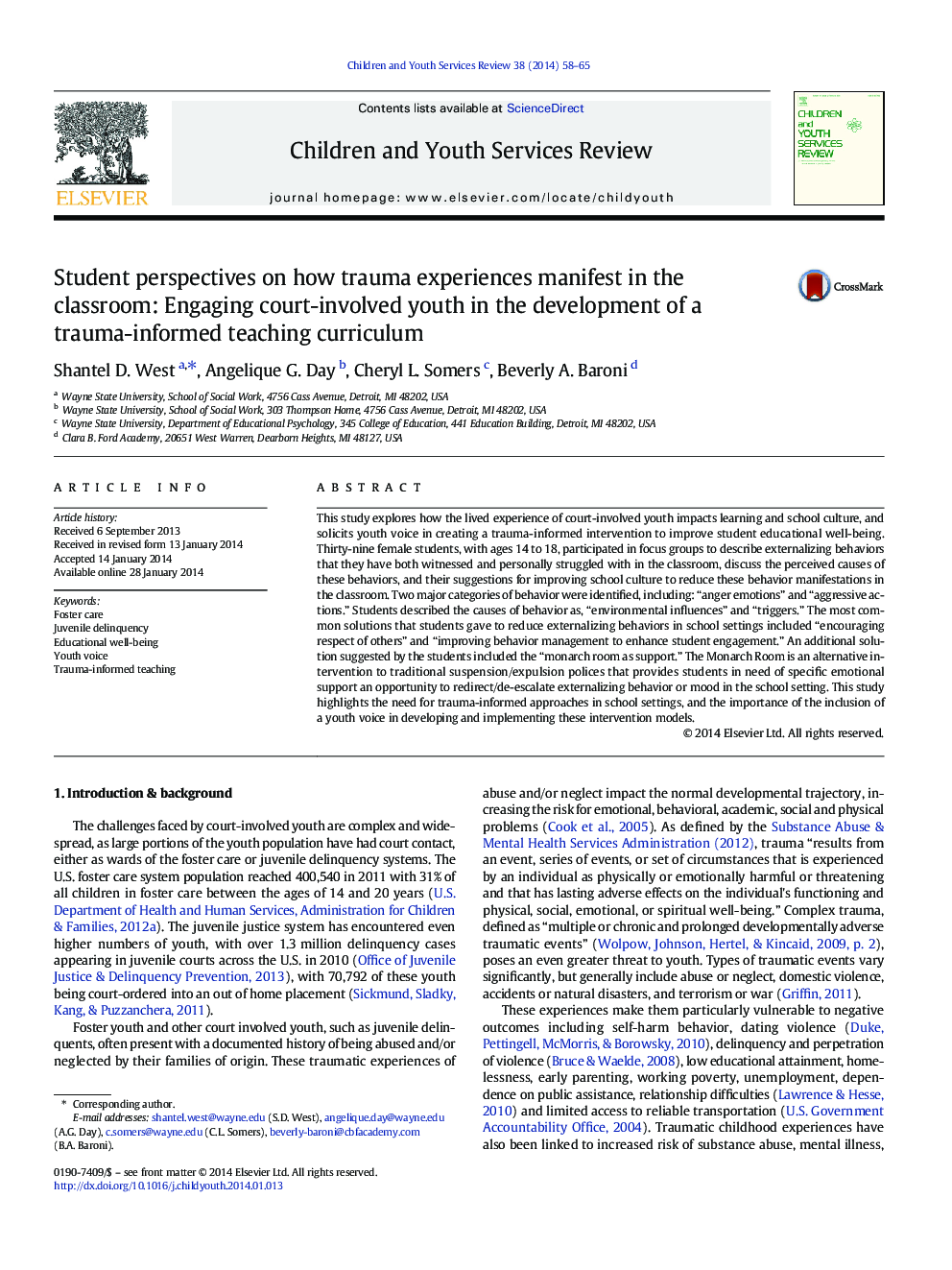| Article ID | Journal | Published Year | Pages | File Type |
|---|---|---|---|---|
| 346194 | Children and Youth Services Review | 2014 | 8 Pages |
•Explored educational experiences of court-involved youth in a residential setting•These students' trauma histories are exhibited in externalizing behaviors in class.•Youth suggested areas for improvement in classroom structure.•Policy/practice implications for trauma-informed practices are offered.
This study explores how the lived experience of court-involved youth impacts learning and school culture, and solicits youth voice in creating a trauma-informed intervention to improve student educational well-being. Thirty-nine female students, with ages 14 to 18, participated in focus groups to describe externalizing behaviors that they have both witnessed and personally struggled with in the classroom, discuss the perceived causes of these behaviors, and their suggestions for improving school culture to reduce these behavior manifestations in the classroom. Two major categories of behavior were identified, including: “anger emotions” and “aggressive actions.” Students described the causes of behavior as, “environmental influences” and “triggers.” The most common solutions that students gave to reduce externalizing behaviors in school settings included “encouraging respect of others” and “improving behavior management to enhance student engagement.” An additional solution suggested by the students included the “monarch room as support.” The Monarch Room is an alternative intervention to traditional suspension/expulsion polices that provides students in need of specific emotional support an opportunity to redirect/de-escalate externalizing behavior or mood in the school setting. This study highlights the need for trauma-informed approaches in school settings, and the importance of the inclusion of a youth voice in developing and implementing these intervention models.
